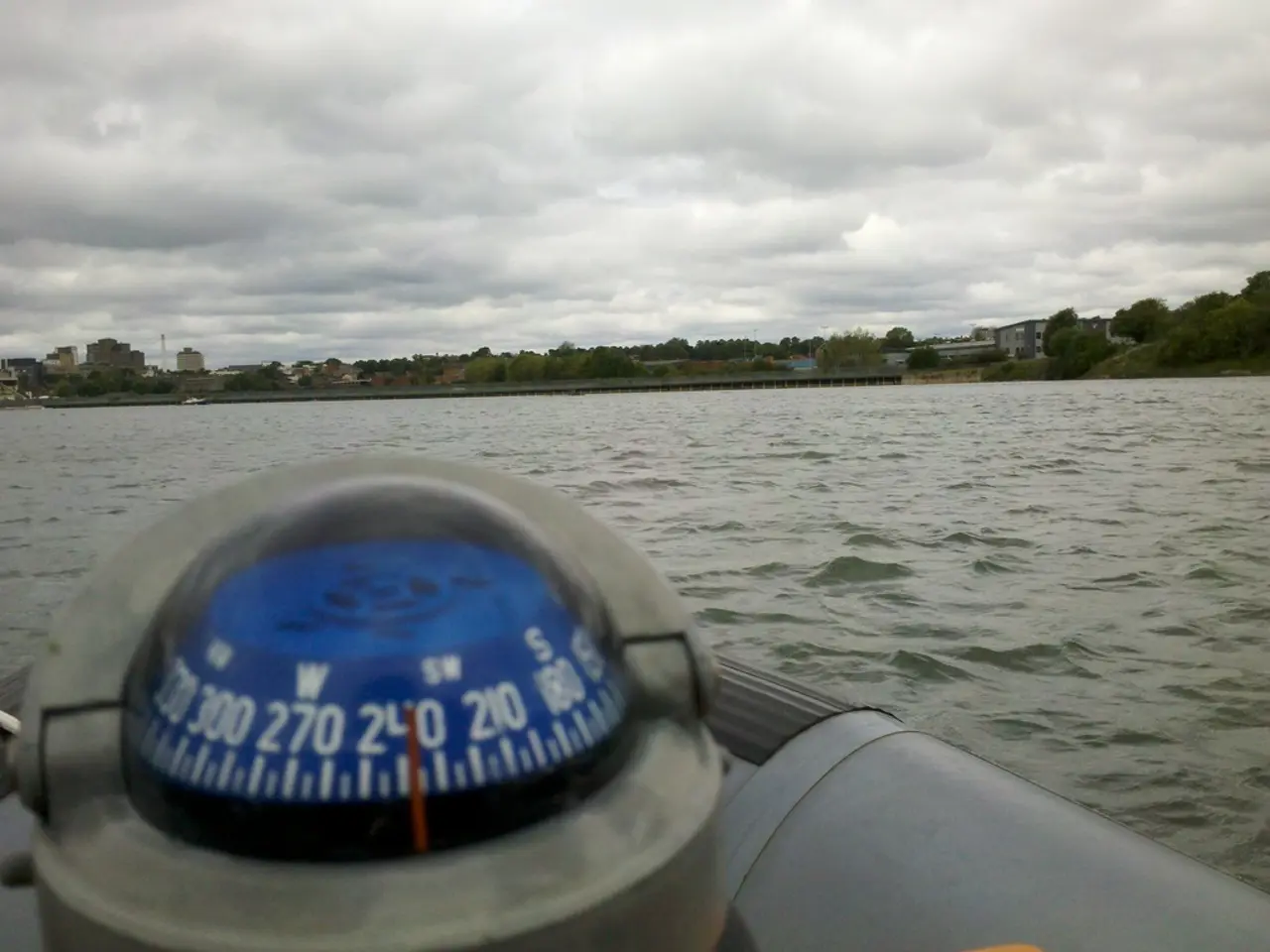Enigmatic Magnetism in Canada's North: Explanation for Malfunctioning Compasses
In the vast and awe-inspiring expanse of the Canadian North, a unique blend of science, culture, and natural wonder awaits those who venture into its heart. This region, with its deep connection to the land and its people, is a place where the mysteries of the Earth's magnetic field add to its allure and mystique.
Compasses, a staple navigational tool for centuries, behave erratically in the Canadian North. This is primarily due to the Earth's magnetic north pole, currently located in this region and moving rapidly. This movement causes local disturbances and variations in the magnetic field, leading to unstable and unpredictable compass readings near the magnetic pole[1].
The proximity to the magnetic north pole is a key factor. Compasses rely on Earth's magnetic field to point toward the magnetic north. Near the magnetic pole itself, magnetic field lines become nearly vertical and chaotic, making compass needles unstable and prone to erratic swings.
Moreover, the rapid movement of the magnetic north, which has been shifting away from the Canadian Arctic towards Siberia at roughly 55 kilometers (about 34 miles) per year over the past two decades, creates irregularities and anomalies in the magnetic field in these northern regions, further worsening compass reliability[1].
The variations in magnetic field intensity, especially in regions close to the poles, also contribute to compass fluctuations. Despite these challenges, understanding the magnetic environment remains crucial for safe and successful navigation in the Canadian North.
Fortunately, modern technology, such as GPS and satellite technology, has revolutionised navigation in the Canadian North, providing accurate positioning unaffected by the magnetic field. This advancement has been a game-changer, offering a reliable means of navigation for explorers, scientists, and adventurers alike.
The work of scientists studying the Earth's magnetic field has practical implications for navigation, communication, and climate science. By understanding the complexities and changes in the Earth's magnetic field, scientists can predict its future behaviour and help mitigate potential navigational challenges.
Indigenous cultures in the Canadian North have long understood and respected the natural forces at play, incorporating them into their traditions and knowledge. This deep connection to the land and its magnetic mysteries adds another layer of fascination to the Canadian North, making it a truly unique and captivating destination.
The future of magnetic exploration in the Canadian North is filled with promise and potential, inviting scientists, explorers, and adventurers to delve into the unknown. As the magnetic north continues to shift, the Canadian North remains a region where science, culture, and nature intersect, offering a deeper connection to the land and its people, and a glimpse into the resilience and ingenuity of life on Earth.
[1] Source: Geological Survey of Canada (GSC) and Natural Resources Canada (NRCan)
- The ongoing evolution of environmental-science, including research into the Earth's magnetic field, is essential for safe and successful navigation in the Canadian North, where climate-change has caused the magnetic north pole to shift away from the Arctic towards Siberia, affecting compass readings.
- In addition to traditional navigational tools such as compasses, data-and-cloud-computing technology like GPS and satellite systems have become essential for accurate positioning in the Canadian North, thanks to advancements in technology and physics.
- The study of wildlife and their interactions with the environment in the Canadian North can provide insight into the effects of climate-change on their behaviors and adaptations, as well as contributing to the broader understanding of evolution and biology.
- The unique blend of science, culture, and natural wonder found in the Canadian North has been shaped by the region's connection to the land and its people, making it attractive not only to researchers and explorers but also to those with an appreciation for the beauty and mysteries of the natural world.




